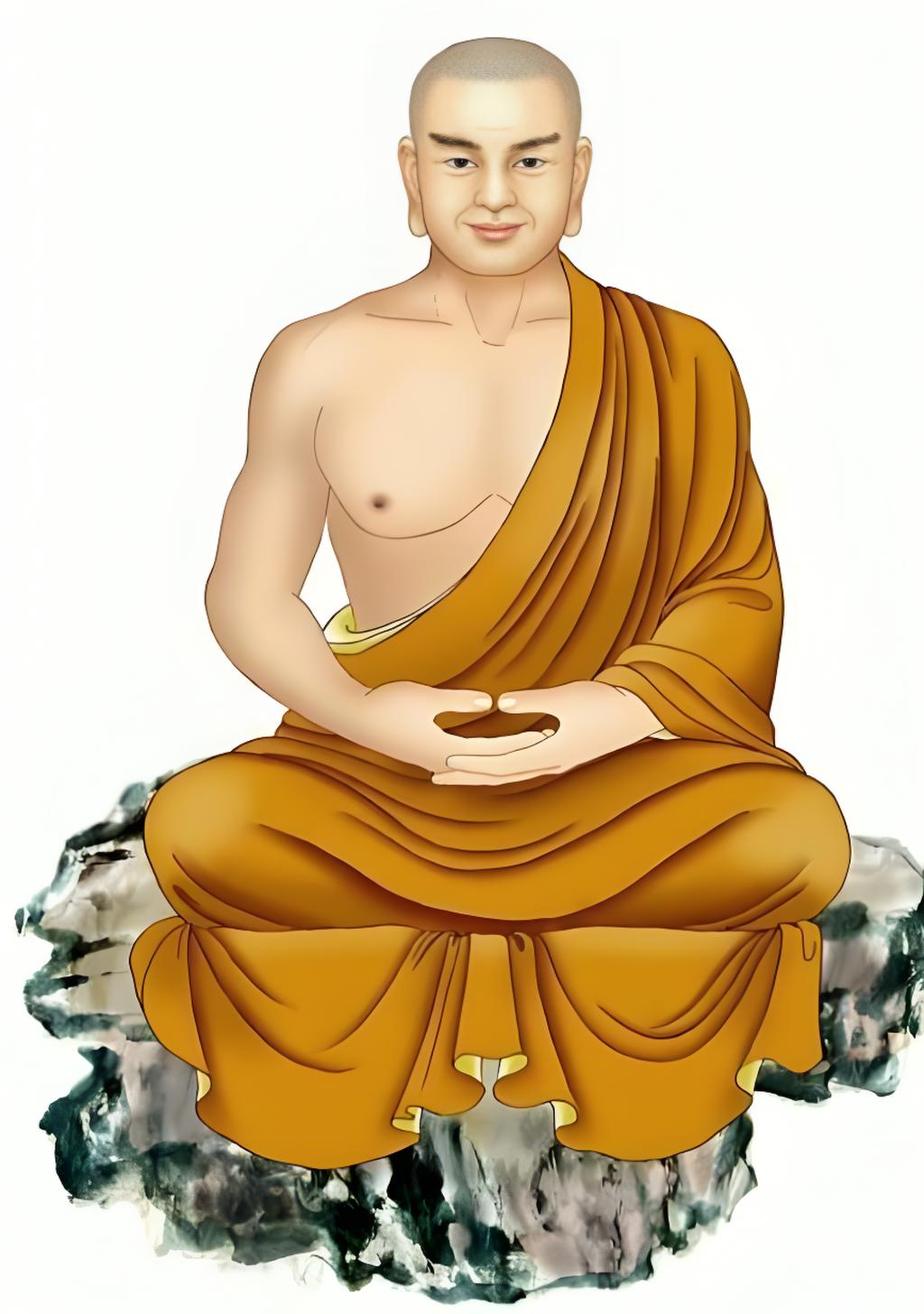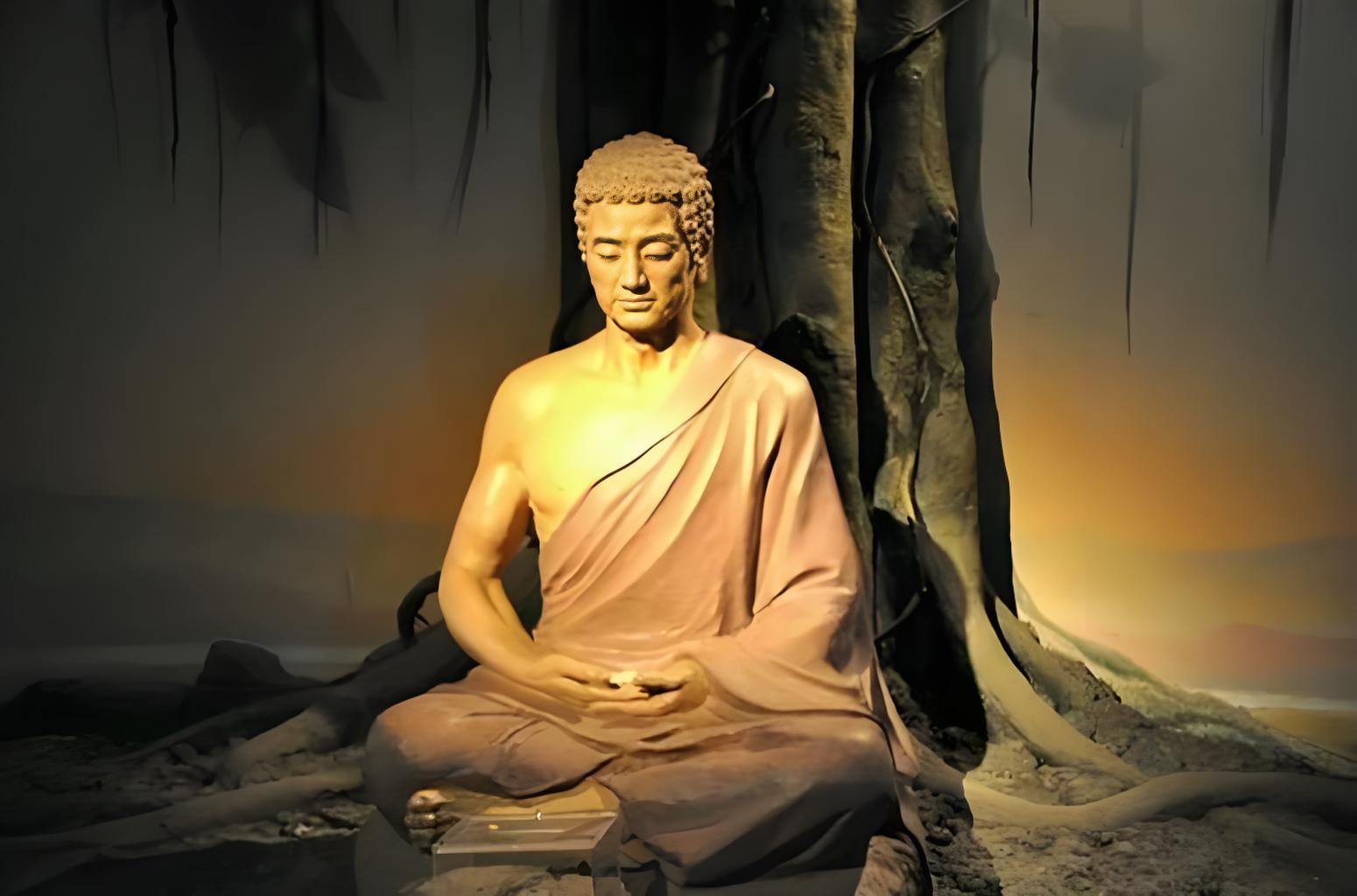Shariputra, a name derived from the Sanskrit “Shariputra,” is a shortened form of “Shariputra-tara,” which translates to “Son of Sharika” or “Son of Autumn Dew.” His name is derived from his mother’s name.
The Meaning Behind the Name
“Sharika” is his mother’s name, and “putra” means “son.” Thus, “Shariputra” literally means “Son of Sharika.” Sharika’s name is believed to have originated from a bird species, referred to as “autumn dew,” “heron,” or “shrike.” Some say her eyes resembled those of a heron, while others claimed she was the most intelligent and eloquent woman, likened to a shrike. Therefore, Shariputra was also known as “Heron Son” or “Shrike Son.”
Shariputra’s Brahmin Heritage
According to Buddhist texts such as the Buddha’s Deeds and Gatherings Sutra and the Increased Lineage Sutra, Shariputra was born into the highest Brahmin caste in the ancient Indian kingdom of Magadha. The Brahmins of that time considered themselves to be “human gods” and the “most superior caste” in Indian society.
From Seeker to Disciple
Initially, Shariputra practiced outside the realm of Buddhism. However, following the unexpected death of his teacher, he felt lost and without direction. During this time, he encountered Maudgalyayana, who was also searching for enlightenment. They made a pact that whoever found the path to liberation would share it with the other.
One day, Shariputra met Ashvajit, a monk, and they engaged in a stimulating conversation. Ashvajit explained the principle of “dependent origination,” a core concept in Buddhism. Shariputra was deeply impressed and inquired about the source of this wisdom. Ashvajit told him that it was taught by the Buddha, Shakyamuni. Shariputra then informed Maudgalyayana, and together they, along with their 200 disciples (some say 250), sought out the Buddha and joined his monastic order. This conversion played a significant role in expanding the reach of Buddhism.
“Wisdom First”
Shariputra inherited his mother’s remarkable traits. Among the Buddha’s disciples, he was known for his quick wit, extensive knowledge of the scriptures, and skill in teaching Buddhist principles. He was highly regarded and called “Wisdom First”.
Shariputra’s Passing
Legend has it that when the Buddha was 80 years old, he told his disciples that he would enter Nirvana (pass away) in three months. Shariputra, being a foremost disciple, was deeply saddened. Unwilling to witness the Buddha’s death, he asked to pass away before the Buddha. The Buddha explained the karmic reasons for this. Soon after, Shariputra self-entered Nirvana (passed away through his own volition), becoming a martyr for the path.
The Story of Shariputra
Exceptional Beginnings:
Shariputra’s mother was known for her beauty and sharp, dark eyes, resembling those of a heron. Because of this, he was sometimes called “Pearl”. Shariputra was exceptionally gifted from birth. While still in his mother’s womb, she became incredibly intelligent and eloquent.
Shariputra’s mother was from a Brahmin family, and her younger brother was Maha Kothilla. The siblings often debated, with the sister usually losing. However, after becoming pregnant, her eloquence increased, and she began winning their arguments. Maha Kothilla knew then that she was carrying a special child.
The “Long-Nailed Ascetic”
To avoid his nephew surpassing him in intellect, Kothilla began studying the scriptures intensely, mastering the four Vedas and eighteen great sutras. He neglected everything, including cutting his fingernails, earning him the name “Long-Nailed Ascetic”.
A Child Prodigy
By the age of eight, Shariputra had mastered all non-Buddhist texts and had no equal in debate. His country held an annual festival called the “Mountain Top Festival” to honor the Dragon King. During this gathering, a special seat was reserved for the most intelligent scholar.
At the age of eight, Shariputra attended this gathering and, finding no one capable of challenging him, took the reserved seat. This caused some surprise, as he was only a child. Though puzzled, the other scholars did not want to debate him directly and instead asked a child to pose the questions.
Shariputra answered all questions with agility and grace. He became well-known throughout the sixteen major kingdoms, and both young and old admired his wisdom.
The Path to Renunciation
Shariputra, despite his initial excitement, soon became weary of the sensual indulgences of the festival and began contemplating the impermanence of life. He felt a desire to seek a deeper path to liberation.
Maudgalyayana, who also attended the festival, shared similar feelings. They decided to renounce their worldly lives and pursue spiritual practice together. They undertook a hunger strike to persuade their families to allow them to renounce.
A Pillar of the Sangha
Within half a month of becoming a monk, Shariputra became proficient in all aspects of Buddha’s teachings, and attained the state of Arhat. Therefore, the Buddha referred to him as a “Dharma General,” and “Wisdom First”.
Shariputra was not only known for his wisdom but also his supernatural abilities, which were comparable to Maudgalyayana’s. The story of the dragon king’s visit to the Buddha’s assembly is an example of his power. The Dragon King asked Maudgalyayana to bring Shariputra to the assembly.
Maudgalyayana found Shariputra meditating and woke him, saying: “The Buddha asks you to come immediately.” Shariputra replied, “Okay, you go first.” But Maudgalyayana insisted that they go together. Shariputra placed his belt on the ground and said, “If you can move this belt, I will go with you.” Maudgalyayana tried with all his strength but could not move the belt at all.
Maudgalyayana went first, but Shariputra had already arrived at the assembly, showing that he was not only wise but had supernatural powers.
Shariputra also had a high standing in the monastic community, and was considered the second most influential leader. He was well respected and a helper within the Sangha.
During meals, he would be the last one served. He would also check the living quarters of the other monks to ensure that all was in order. He was a helpful brother and had great authority within the community.
Shariputra’s Final Act
When the Buddha announced that he would enter Nirvana, Shariputra entered into meditation to contemplate what his role should be.
He saw that before all Buddhas’ Nirvana, their chief disciples would go into Nirvana first. He asked the Buddha for permission to enter Nirvana seven days before the Buddha.
The Buddha asked where he planned to enter Nirvana. Shariputra wanted to return to his birthplace to help his mother. His mother, even though her other sons had ordained and reached Arhat, was still a believer of the Brahmic path.
He meditated again and determined he could change his mother’s beliefs. He chose to return to his birthplace to reach Nirvana in the room in which he was born.
He returned home, which made his mother wonder if he was planning to renounce his vows. She questioned him because of their different beliefs. However, he stayed at her house for the night.
A Miraculous Passing
That night, four heavenly kings heard of Shariputra’s impending Nirvana. They came to his house to pay their respects, asking if they could help him. Shariputra declined, and they departed, leaving a brilliant light.
After they left, the king of the Trayastrimsa Heaven arrived, followed by the Great Brahma King late in the night.
His mother saw all of these events and the following morning asked, “Who were all of those divine beings last night? Three different groups came?”
Shariputra explained that the first group was the four heavenly kings. His mother was astonished. “The Four Heavenly Kings? This is incredible! Does that mean you are greater than the Four Heavenly Kings?” Shariputra said, “The Four Heavenly Kings are protectors of the Buddha.” “Who was the second group?” “The king of the Trayastrimsa Heaven.” “Are you greater than him?” “The king of the Trayastrimsa Heaven is also a protector of the Buddha.” “And who was the third, who seemed to be the most brilliant?” “The Great Brahma King.”
His mother was even more amazed. The Great Brahma King was her deity, whom she prayed to daily. “The Great Brahma King came to see you? Are you greater than him?” Shariputra explained that the Great Brahma King had asked the Buddha to turn the wheel of Dharma.
She concluded that Shariputra’s teacher must be remarkable. Then, Shariputra shared the Buddha’s teachings with his mother.
Hearing this, she developed great faith and achieved the first stage of enlightenment.
Shariputra then felt that his work in this world was complete. He entered into Nirvana in the same posture as the Buddha. He entered into the first Jhana, then the second, then the fourth, and then the four formless states of meditation before reaching complete Nirvana.
His mother gathered all her family’s treasures to cremate him and built a beautiful stupa for his relics.
Shariputra, as a central figure in the Amitabha Sutra, represents those with the highest wisdom who can understand the Pure Land teachings.
His influence within the entire monastic community was significant. His belief in the Pure Land teachings, inspired many other monks to follow. Thus, the choice of Shariputra as the main listener for this Sutra was a profound one.


